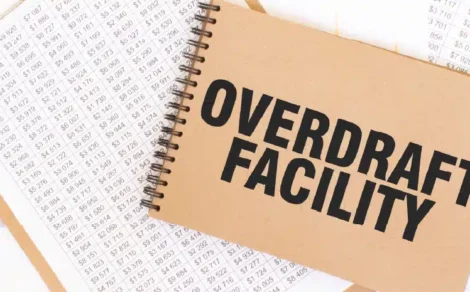MMID (Mobile Money Identifier) is a unique 7-digit code issued by banks, linked to your mobile number and bank account, used for secure and instant fund transfers via IMPS in mobile banking.
Mobile banking has transformed how we handle our money. No more standing in long lines or rushing to the bank before closing time. With a smartphone and an internet connection, you can transfer money in seconds. One crucial element making this possible is the MMID. In this blog, we will explore what MMID means and why it matters for your banking needs.
What Does MMID Mean?
MMID stands for Mobile Money Identifier. It is a 7-digit unique code that banks issue to customers who register for mobile banking services. The MMID full form is Mobile Money Identifier, which serves as your digital banking identity for certain transactions.
Your MMID number is linked directly to your bank account. You can think of it as a digital fingerprint for your banking identity. When you register for mobile banking, your bank automatically generates this MMID code for you.
The Significance of the MMID Number
Your MMID number plays a vital role in mobile banking and electronic transactions. Here are some scenarios where you need to use your MMID:
- Fund transfers: You need to enter the recipient’s MMID number to initiate a fund transfer via mobile banking.
- Bill payments: While paying bills using your mobile banking app, you may be asked to provide your MMID number for authorisation.
The Key Features of MMID
The MMID comes with several helpful features:
- It is a unique 7-digit code that never changes.
- You do not need to remember your account number for transactions.
- It enables quick money transfers through IMPS.
- It works 24/7, including weekends and holidays.
- Transactions usually complete within seconds.
- It makes mobile banking secure and convenient.
Working of MMID in Mobile Banking
Using your MMID in banking is straightforward. Here is how it works:
- First, register for mobile banking with your bank.
- Your bank will generate an MMID number for you.
- To send money, you will need the recipient’s mobile number and their MMID.
- Enter these details, along with the amount on your mobile banking app.
- Confirm the transaction with your MPIN.
- The money transfers instantly to the recipient’s account.
This process uses the Immediate Payment Service (IMPS) platform developed by the National Payments Corporation of India. The MMID code, along with your mobile number, creates a secure channel for fund transfers.
What are the Differences Between MMID and IFSC Codes?
MMID is a 7-digit code used for mobile-based fund transfers, while IFSC is an 11-digit alphanumeric code used for electronic fund transfers between banks. Here is a more detailed breakdown:
| Feature | MMID | IFSC Code |
| Full form | Mobile Money Identifier | Indian Financial System Code |
| Length | 7 digits | 11 characters |
| Purpose | Used for IMPS mobile transactions | Used for NEFT and RTGS transfers |
| Issued by | Bank when you register for mobile banking | RBI to identify bank branches |
| Linked to | Your bank account and mobile number | Bank branch location |
| Format | Numeric only | Alphanumeric |
The Significant Role of MMID in IMPS Transactions
The MMID full form in banking might sound technical, but its purpose is simple. It makes instant money transfers possible. The Immediate Payment Service (IMPS) uses your MMID to process transactions 24/7.
If you are wondering what is MMID code importance, it eliminates the need to share bank account details. You only need someone’s mobile number and their MMID to send them money. Here is why the MMID is essential for IMPS:
- It protects your account details from being shared
- It enables instant verification of transaction details
- It allows round-the-clock money transfers
- It reduces the risk of transaction errors
Final Words
The MMID has revolutionised mobile banking in India. This simple 7-digit code makes money transfers faster, more convenient, and more secure. By understanding what MMID means and how it works, you can take full advantage of mobile banking services. Remember to keep your MMID confidential and never share it with unauthorised people. Join Torus Digital today and manage all your banking and trading needs under one roof!
Frequently Asked Questions
You can get your MMID by registering for mobile banking with your bank. The MMID is usually sent via SMS, available in your mobile banking app, or can be requested at your bank branch.
No, MMID is not required for UPI transactions. UPI uses virtual payment addresses (VPAs) and does not need MMID for fund transfers.
Each bank account is assigned a unique MMID, but if you have multiple accounts in the same bank, each can have its own MMID. One mobile number can be linked to multiple MMIDs.
Yes, MMID is considered safe as it allows fund transfers without sharing sensitive account details, reducing the risk of fraud and ensuring secure mobile banking transactions.
Related Reads
Understanding Types of Fixed Deposit
Fixed Deposits (FDs) are one of the most preferred investment options in India. Known...
By: torus
- 5 mins
- 06.Aug.2025
- 0(0)
- 0
Difference Between Fixed Deposit and Recurring Deposit
When planning your investments, choosing the right product that aligns with your financial goals...
By: torus
- 5 mins
- 06.Aug.2025
- 0(0)
- 84
Fixed Deposits vs Mutual Funds: A Complete Guide
When it comes to selecting investment options, two of the most popular choices among...
By: torus
- 5 mins
- 06.Aug.2025
- 0(0)
- 38
What is Overdraft Against Fixed Deposit?
When you need urgent funds but don’t want to break your fixed deposit (FD),...
By: torus
- 5 mins
- 06.Aug.2025
- 0(0)
- 52
What is a Fixed Deposit - FD Meaning, Full Form and Types
A fixed deposit (FD) is one of the most traditional and popular investment tools...
By: torus
- 7 mins
- 06.Aug.2025
- 0(0)
- 44
How to Grow Your Savings with Torus Digital Savings Account?
At a time when financial growth is key, saving smartly matters more than ever....
By: torus
- 8 mins
- 04.Aug.2025
- 0(0)
- 32
Disclaimer: The content provided in this blog is for informational purposes only and does not constitute financial advice or recommendations. The content may be subject to change and revision. Readers are encouraged to conduct their own research and consult with a qualified financial advisor before making any investment decisions. Torus Digital and its affiliates takes no guarantees whatsoever as to its completeness, correctness or accuracy since these details may be acquired from third party and we will not be responsible for any direct or indirect losses or liabilities incurred from actions taken based on the information provided herein. For more details, please visit www.torusdigital.com.
Tenneco Clean Air IPO Listing: Strong Market Debut with 27% Premium
Tenneco Clean Air India Ltd made a confident entrance into the public markets on...
By: torus
- 5 mins
- 19.Nov.2025
-
3.7(6)
-
424
Stock to Buy Today: November 19, 2025
The Indian stock market witnessed a mild decline on November 18, 2025, ending a...
By: torus
- 4 mins
- 19.Nov.2025
-
4.3(3)
-
424
Mirae Asset Infrastructure Fund NFO: A Sector-Focused Bet on India’s Growth
Mirae Asset Mutual Fund has launched a new equity scheme — Mirae Asset Infrastructure...
By: torus
- 4 mins
- 18.Nov.2025
-
4.3(6)
-
424
Emmvee Photovoltaic IPO: Shares Make Muted Market Debut, List Flat At ₹217
Emmvee Photovoltaic Power made a muted debut on 18 November 2025, listing flat at...
By: torus
- 3 mins
- 18.Nov.2025
-
3.7(6)
-
424








